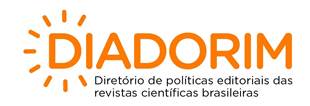Descriptive epidemiological study of migraine in three emergency departments of the public health network of Chile
Views: 636DOI:
https://doi.org/10.48208/HeadacheMed.2025.6Keywords:
Migraine, Consultations, Health disorderAbstract
Background
Migraine is a prevalent neurological disorder with a significant impact on public health. This study aims to describe the epidemiological profile of migraine cases treated in three public emergency departments in Chile.
Methods
A descriptive epidemiological study was conducted using data from patients diagnosed with migraine in three emergency departments. Patient demographics, clinical presentation, and treatment approaches were analyzed.
Results
During the study period, 199,263 patients were seen across three hospitals. Migraine consultations accounted for 1.47% of visits, with 1.65% at HLF, 1.2% at HFB, and 1.58% at HCM. The majority of cases were in women at HLF and HFB, while men represented 71.6% of cases at HCM. The highest frequency of cases was observed in the active age groups.
Conclusions
This study highlights the burden of migraine in public emergency departments in Chile. The findings emphasize the need for optimized treatment protocols and preventive strategies to improve patient outcomes.
Downloads
References
Stovner LJ, Nichols E, Steiner TJ, Abd-Allah F, Abdelalim A, Al-Raddadi RM, et al. Global, regional, and national burden of migraine and tension-type headache, 1990–2016: a systematic analysis for the Global Burden of Disease Study 2016. Lancet Neurol 2018;17:954–76. Doi:10.1016/S1474-4422(18)30322-3.
Pacheco-Barrios K, Velasquez-Rimachi V, Navarro-Flores A, Huerta-Rosario A, Morán-Mariños C, Molina RA, et al. Primary headache disorders in Latin America and the Caribbean: A meta-analysis of population-based studies. Cephalalgia 2023;43. Doi:10.1177/03331024221128265.
Vos T, Abajobir AA, Abate KH, Abbafati C, Abbas KM, Abd-Allah F, et al. Global, regional, and national incidence, prevalence, and years lived with disability for 328 diseases and injuries for 195 countries, 1990–2016: a systematic analysis for the Global Burden of Disease Study 2016. The Lancet 2017;390:1211–59. Doi:10.1016/S0140-6736(17)32154-2.
Lavados P, Tenhamm E. Epidemiology of Migraine Headache in Santiago, Chile. Cephalalgia 1997;17:770–7. Doi:10.1046/j.1468-2982.1997.1707770.x.
Margozzini P, Passi Á. Encuesta Nacional de Salud, ENS 2016-2017: un aporte a la planificación sanitaria y políticas públicas en Chile. ARS MEDICA Revista de Ciencias Médicas 2018;43:30–4. Doi:10.11565/arsmed.v43i1.1354.
Villate S. Prevalencia de casos nuevos de migraña en la demanda ambulatoria neurológica del Hospital de Área Programa El Bolsón. Neurología Argentina 2020;12:233–8. Doi:10.1016/j.neuarg.2020.07.003.
Brewerton TD, George MS. A Study of the Seasonal Variation of Migraine. Headache: The Journal of Head and Face Pain 1990;30:511–3. Doi:10.1111/j.1526-4610.1990.hed3008511.x.
Rich SJ. Burden of migraine and impact of emerging therapies on managed care. Am J Manag Care 2019;25:S35–9.
Paredes-Fernández D, Lenz-Alcayaga R, Hernández-Sánchez K, Quiroz-Carreño J. Characterization and analysis of the basic elements of health payment mechanisms and their most frequent types. Medwave 2020;20:e8041–e8041. Doi:10.5867/medwave.2020.09.8041.
Breslau N, Rasmussen BK. The impact of migraine. Neurology 2001;56. Doi:10.1212/WNL.56.suppl_1.S4.
Volcy Gómez M. Impacto social, económico y en el sistema de salud de la migraña y otras cefaleas primarias. Rev Neurol 2006;43:228. Doi:10.33588/rn.4304.2004629.
Henry P, Michel P, Brochet B, Dartigues JF, Tison S, Salamon R. A Nationwide Survey of Migraine in France: Prevalence and Clinical Features in Adults. Cephalalgia 1992;12:229–37. Doi:10.1046/j.1468-2982.1992.1204229.x.
Hu XH, Markson LE, Lipton RB, Stewart WF, Berger ML. Burden of Migraine in the United States. Arch Intern Med 1999;159:813. Doi:10.1001/archinte.159.8.813.
Dahlöf C, Linde M. One-Year Prevalence of Migraine in Sweden: A Population-Based Study in Adults. Cephalalgia 2001;21:664–71. Doi:10.1046/j.1468-2982.2001.00218.x.
Censo 2017 (Chile). Estimaciones y Proyecciones de la Población de Chile 1992-2050 (Total País) n.d. http://www.censo2017.cl (accessed December 31, 2023).
Ministerio de Salud de Chile. Departamento de Estadísticas e Información de Salud n.d. https://deis.minsal.cl/ (accessed January 20, 2024).
Westergaard ML, Glümer C, Hansen EH, Jensen RH. Medication overuse, healthy lifestyle behaviour and stress in chronic headache: Results from a population-based representative survey. Cephalalgia 2016;36:15–28. Doi:10.1177/0333102415578430.
Peters GL. Migraine overview and summary of current and emerging treatment options. Am J Manag Care 2019;25:S23–34.
Oliver N. Migraine Management in the Emergency Department. J Emerg Nurs 2020;46:518–23. Doi:10.1016/j.jen.2020.04.002.
Lipton RB, Bigal ME. The epidemiology of migraine. The American Journal of Medicine Supplements 2005;118:3–10. Doi:10.1016/j.amjmed.2005.01.014.
Headache Classification Committee of the International Headache Society (IHS) The International Classification of Headache Disorders, 3rd edition. Cephalalgia 2018;38:1–211. Doi:10.1177/0333102417738202.
Barrientos U. N, Juliet P. R, Rapoport A, Salles G P, Milán S. A, Meza C. P. Cefalea por abuso de medicamentos y sus marcadores clínicos. Rev Chil Neuropsiquiatr 2022;60:26–39. Doi:10.4067/s0717-92272022000100026.
Friedman BW. Migraine in the Emergency Department. Neurol Clin 2019;37:743–52. Doi:10.1016/j.ncl.2019.07.005.
Burch R, Rizzoli P, Loder E. The prevalence and impact of migraine and severe headache in the United States: Updated age, sex, and socioeconomic‐specific estimates from government health surveys. Headache: The Journal of Head and Face Pain 2021;61:60–8. Doi:10.1111/head.14024.
Pari E, Rinaldi F, Gipponi S, Venturelli E, Liberini P, Rao R, et al. Management of headache disorders in the Emergency Department setting. Neurological Sciences 2015;36:1153–60. Doi:10.1007/s10072-015-2148-7.
Minen MT, Tanev K, Friedman BW. Evaluation and Treatment of Migraine in the Emergency Department: A Review. Headache: The Journal of Head and Face Pain 2014;54:1131–45. Doi:10.1111/head.12399.
Dodick DW. Migraine. The Lancet 2018;391:1315–30. Doi:10.1016/S0140-6736(18)30478-1.
Bigal ME, Lipton RB, Stewart WF. The epidemiology and impact of migraine. Curr Neurol Neurosci Rep 2004;4:98–104. Doi:10.1007/s11910-004-0022-8.
Buse DC, Manack AN, Fanning KM, Serrano D, Reed ML, Turkel CC, et al. Chronic Migraine Prevalence, Disability, and Sociodemographic Factors: Results From the American Migraine Prevalence and Prevention Study. Headache: The Journal of Head and Face Pain 2012;52:1456–70. Doi:10.1111/j.1526-4610.2012.02223.x.
Adams AM, Serrano D, Buse DC, Reed ML, Marske V, Fanning KM, et al. The impact of chronic migraine: The Chronic Migraine Epidemiology and Outcomes (CaMEO) Study methods and baseline results. Cephalalgia 2015;35:563–78. Doi:10.1177/0333102414552532.
Downloads
Published
How to Cite
Issue
Section
License
Copyright (c) 2025 Cristián Neira Osses, Olga Benavides Canales, Mérida Terán Jiménez, Constanza Ramírez Pérez, Félix Carreño Rojas, Ramiro Fernández Calderón, Danilo Aranzaes Valdés, Paulina Meza Castro, Diego Morales Vidal (Author)

This work is licensed under a Creative Commons Attribution 4.0 International License.












